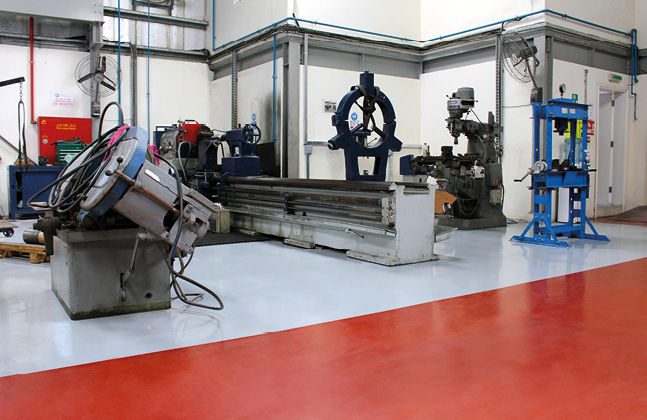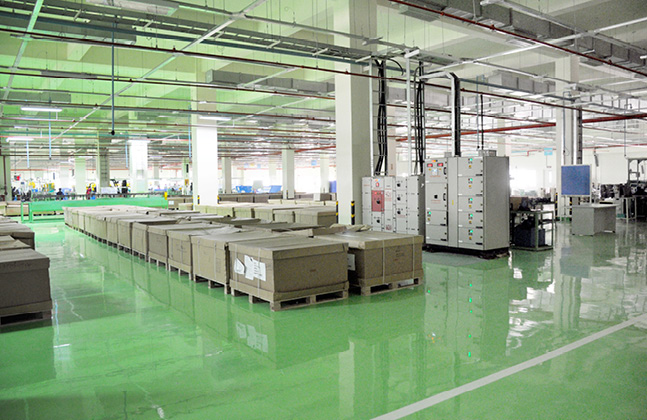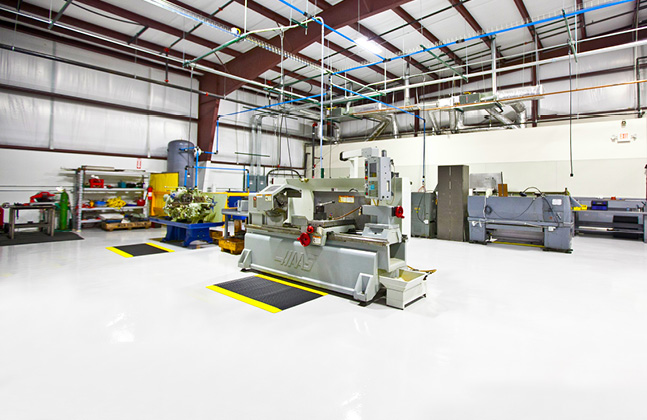The protection of concrete floors must be viewed as a key aspect of all industrial buildings, however the modern expectation of a good industrial floor also encompasses aesthetics, fast track installation, durability, anti-slip properties, functionality, sustainability and moisture resistance.
With advancements in resin technology and increased awareness of the issues, people no longer just view the floor as a floor, they have much higher expectations. Many materials that appear economical in the short term are not long lasting and can start to break down or delaminate. These cheap and cheerful systems almost always demand an extremely expensive repair or replacement, not to mention the loss of production time and budget overruns when lifecycle costing isn’t taken into account.
The most frequently abused and neglected area of any premises in an industrial environment is none other than the floor. Therefore the ultimate objective should be to protect the surface against deterioration and contamination. To do this effectively the surface should be specially designed to incorporate enhanced performance characteristics in order to sufficiently protect the floor against the daily rigours of the industry.
Industrial Flooring Challenges
Flooring in industrial environments faces various challenges on a consistent basis which can result in uneven construction joints and surfaces, unsanitary working conditions and an unsafe working environment if the correct flooring system is not specified.
Challenges to the floor include:
- High impacts
- Moisture penetration
- Chemical spillage
- Wheeled and human traffic
- Atmospheric gases
- Thermal shock
- Bioburden build up
- Mechanical loadings
- Electrostatic discharge
- Bad spalling
Common Side Affects
Not specificying the correct industrial flooring system can lead to all manner of unwanted side affects which can cause considerable problems for an industrial facility. If left untreated floor damage issues can lead to costly disruption in certain areas of a plant or even worse a significant decrease in productivity and ultimately profitability.
Common side affects include:
- Potholes
- Delamination
- Damp contamination
- Dust build up
- Chipping
- General abrasion
Key Flooring Characteristics
In order to overcome industrial flooring challenges and avoid the common side affects of an incorrectly specified flooring system, there are numerous key flooring characteristics that can ensure that your system is fit for purpose for many years to come.
Key flooring characteristics include:
- Chemical resistance
- Durability
- Water resistance
- Low shrinkage
- Fuel resistance
- Temperature resistance
- Hygiene
- UV resistance
- Low VOC / AMC (Volatile Organic Compounds / Airborne Molecular Contaminants) emissions
To find out more about Flowcrete India’s specialist range of industrial floor coatings to suit all requirements, visit our website www.flowcrete.in or alternatively you can contact us on +91 44 42029831 or at indweb@flowcrete.com to book your free floor consultation today!







